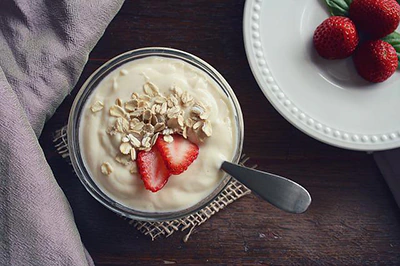| Additive Summary | Potassium Sorbate (E202) |
|---|---|
| Essence | Potassium Sorbate is an odorless, bland-tasting, synthetically-made preservative that is great for inhibiting molds, fungi, and yeast but not very effective against bacteria. |
| Names | Sorbic acid potassium salt, 2-propenylacrylic acid potassium salt, 4-hexadienoic acid potassium salt, t-2, 202, Potassium Sorbate, and others. |
| Sourcing | While it can be found in nature (European Mountain-ash fruit), it is commercially produced entirely synthetically. |
| Manufacturing | Creating the additive is basically a four-step process. First, it is about the condensation reaction. This means that 3-hydroxy-4-hexenoic acid is produced by condensation of ketene and crotonaldehyde. Second, it’s about decomposing the outcome of that to create Sorbic Acid. Third, it undergoes purification by applying activated carbon, then distillation, then recrystallization, as well as potentially other processes. Finally, it’s neutralization which is a process that uses Potassium Hydroxide. |
| Application | Preservative (synthetic, very water-soluble). |
| Acceptable Daily Intake | Depending on the agency, it is set at various amounts up to 3-25 milligrams on every kilogram of body weight. But we shouldn’t really consume it ever. |
| Side Effects | This substance has been shown in studies to damage white blood cells which damage gene information which can lead to cancer, DNA damage, and other things. Additionally, it can also cause nausea, diarrhea, migraines, nutrient loss of foods, reproductive toxicity, developmental toxicity, allergies, genotoxicity, and other hazards. |
| Benefits | None. |
| Studies | 585+ studies on Pubmed. 80+ studies on safety. |
| Allergens | None. |
| Diet Restrictions | None. |
| Health Knight Assessment | Harmful. | Category 4 Additive. |
| Products | Potassium Sorbate can be very prominent with supplements. For example, it can be found in supplements like Applied Nutrition Liquid Collagen, Reverse Life Collagen, Vim & Vigor Collagenate, and others. It is also widespread in processed food. It can be present in wine, milkshakes, cakes, hummus, pastries, biscuits, brownies, wraps, muffins, cookies, cupcakes, sausages, salami, pestos, nuggets, salads, cereal bars, canned fruits, carbonated drinks, dressings, cheese, jams, margarine, gnocchi, ciders, ketchup, tortillas, soft drinks, syrups, burgers, bread, yogurt, sandwiches, fruit juices, canned vegetables, sauces, spreads, energy drinks, pasta, mayonnaise, bagels, sushi, pizzas, salsa, gingerbreads, croissant, pies, doughnuts, eclairs, sour cream, and others. |



